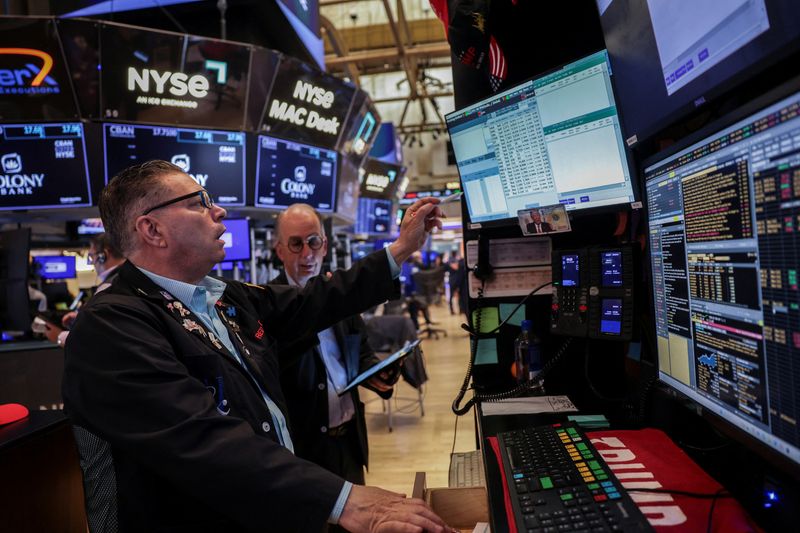ORLANDO, Florida (Reuters) – TRADING DAY
Understanding Global Market Dynamics
By Jamie McGeever, Markets Columnist
On Tuesday, the S&P 500 and Nasdaq reached new heights, buoyed by a significant rise in Nvidia shares, although they ended the day unevenly as investors reacted to rising U.S. inflation, a series of earnings reports from major U.S. financial firms, and increasing bond yields worldwide, particularly in Japan.
In today’s column, I explore whether a sense of complacency regarding tariffs is beginning to set in among traders, as many are leaning toward the so-called ‘TACO’ trade.
Today’s Important Market Movements
The Nasdaq posted a 0.2% increase while other U.S. indices fell, with the Russell 2000 small-cap index decreasing by 1.7%. Nvidia’s stock climbed 4% to surpass $172, elevating its market cap above $4 trillion. The UK’s FTSE 100 briefly topped 9000 points before closing down 0.6%, marking its largest decline since early April. Japanese government bond yields continued to rise, with the 10-year yield reaching its highest point since 2008 at 1.595%.
Global equity markets showed mixed results on Tuesday, as two of Wall Street’s major indices, along with the FTSE 100 and the MSCI World index, hit new highs. However, rising U.S. inflation, spiking bond yields, and lukewarm reactions to strong earnings reports from U.S. banks dampened the mood.
Optimism was primarily seen in the tech sector, following Nvidia’s announcement to resume AI chip sales in China. Initially positive sentiment waned later in the day as investors shifted their focus to rising inflationary pressures and bank earnings that failed to inspire bullish activity in the financial sector.
Potential Tariff Impact on Markets
The recent stock market recovery since early April hints at investor belief that U.S. President Trump may not effectively implement his tariff threats. However, this resilience might encourage him to proceed with higher tariffs, which could adversely affect equities in the U.S. and Europe.



